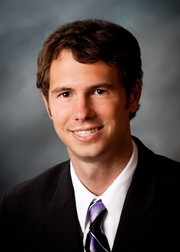What if this is a bad time to invest? There are many things happening in the world today which one can be concerned about. The terrorist attacks in Paris and Brussels remind us there is evil in the world. On a more personal level, life can present a myriad of challenges.
It is not hard these days to find people who are anxious about what the future holds or who are in a gloomy mood. The negativity of election rhetoric certainly doesn’t help. We are selecting a new leader and the candidates have very different views on important issues. They all tout their policies and pan those of their opponents. It is easy to worry.
It would be prudent to remind ourselves of a simple truth: the markets don’t care what any of us think or feel. And, they never have. We apologize if that sounds harsh but that’s how it is.
It is easy to say “don’t worry” but that is not an easy task, especially when it comes to what we can’t control like financial markets.
It is easy to say “don’t worry” but that is not an easy task, especially when it comes to what we can’t control like financial markets. We can ease worrying by looking at the market’s track record. There have been times in the past when we have had plenty to worry about. Despite this, the markets advanced in plenty of time to help most diversified, patient, and disciplined investors get closer to their financial goals than those who lacked those qualities or were too worried to invest in the first place.
What if this is a “bad” time to invest?
Nonetheless, sometimes we can’t help but worry about the current set of worries and wonder if it is a bad time to be invested. So, what if you invest at a “bad” time?
Looking back, if you were unlucky enough to invest in the stocks of large U.S. companies on the very day a “correction” began (10% or greater decline), the average recovery time was three years, according to a 2015 study by Anthony Valeri. That’s less time than it takes to get through high school and shorter than a presidential term. Only after the extreme pounding the markets took to kick off the Great Depression did it take longer than a decade to recover. In only four instances did it take longer than five years to recover, including the 2008 financial crisis which took five and a half years.
With an average of just three years, most of the recovery periods were much shorter. These rapid increases are part of what makes timing the market such a fool’s game. One of the most successful fund managers of all-time, Peter Lynch, famously commented, “Far more money has been lost by investors preparing for corrections, or trying to anticipate corrections, than has been lost in corrections themselves.”
“Far more money has been lost by investors preparing for corrections, or trying to anticipate corrections, than has been lost in corrections themselves.”- Peter Lynch
Of course, few people are unlucky enough to invest only on a “worst” day and most people should not put all their money in stocks. Investors that held some bonds and cash typically recovered in less time. This is largely because they would not have declined as much as the portfolio consisting of 100% large U.S. stocks described in the study. Steady savers, such as 401(k) participants and disciplined investors that rebalanced, could have experienced even faster recovery times because they were buying additional shares at the lower prices present during the corrections.
Markets are resilient
It is also important to note that when the market has hit an all-time high, there has still been a 68% frequency of the market hitting yet another high within 12 months. This supports the idea that the market rises more often than it falls. Further, after a fall of 15% or more, the frequency of the market rising and the average result over the subsequent five years is higher than the historic averages. The worse the drop, the better the next five years (Housel 2015).
There is a critical difference between urgent and important. “Breaking news” and election rhetoric is presented as urgent and specifically designed to forge an emotional reaction in the consumer of such news. But most of what is urgent turns out to NOT be important. It is just noise. Author Seth Godin recently discussed the negative effect the news can have on our decision making saying, “…this drama of seeing the news unfold right now is not going to help you make better decisions–in fact, it’s going to make your decisions worse. It’s also unlikely to make you happier. Or smarter.”
All these market statistics point to the same thing – a very important thing: the market’s ability to adjust to shocks and subsequently advances is impressive. There are no guarantees but the longer your time frame, the better your odds are of getting a good result. This is true even if it turns out to be a less than optimal time to invest and you do not need a very long time frame to get good odds. If you are also diversified, patient, and disciplined, your odds are even better.
Worrying does not help. The markets don’t care. Don’t let the urgency of the noise distract you from what is important. Invest, don’t speculate.
Recommended additional readings:
Which presidential candidates will be good, or bad, for the markets?
Why rebalancing can help when markets decline
Why diversification among asset classes is so important
Why investing globally is important
Why stay in one fund when another is performing better?
Mike Salmon, CFP® has joined the ownership team of Moisand Fitzgerald Tamayo, LLC
Our firm operates under the belief it is more advantageous to work with advisors who are completely independent of any financial services companies. There are too many bad products and poor strategies being peddled by people who are paid to ignore product flaws or consider better options.
We have organized our firm so we are paid only by you to serve only you. We are fiduciaries and as such, never “switch hats” to become salespeople. We take our responsibility to you very seriously. In order to meet our obligations to you and your family for years to come, we must practice what we preach and plan for the future. In that spirit, we are proud to announce Mike Salmon, CFP® is now a co-owner of Moisand Fitzgerald Tamayo, LLC. Mike has been with the firm since 2007 and has been a key contributor to the success of our firm’s clients.

While no founding partners will retire anytime soon, we believe it is our responsibility to assure that our clients continue to be served. Charlie Fitzgerald, CFP® added, “Training the first of our next generation of owners will take us beyond the retirement of the founding members.” As the financial world continues to become more and more complex, we will continue to expand our staff to better serve you.
We sat down with Mike for a quick Q&A session:
What drew you to financial planning?
I’ve always been interested in personal finance and investing but it wasn’t until choosing a major at Purdue that I learned there was a degree that could guide me toward this profession. What started as a hobby has turned into helping people, which is very enjoyable and fulfilling.
What do you enjoy most about your work?
Helping people take piles of financial statements and years of hard work and translating that into a meaningful plan and message. I also really enjoy learning the life stories of the people we work for. Everyone has taken a different path to their success so there is always something to learn.
What will be the biggest challenge facing clients going forward?
The 24/7 news media will continue to present the most provocative and alarming opinions out there. These media pundits and so-called experts don’t know your situation or goals, so most of which they provide is unnecessary anxiety.
What can you share about yourself that might surprise those who know you?
My wife Tiffany and I currently have three children under the age of three! As challenging as this is, we are always surprised and entertained by the random things kids do and it is amazing how much they observe and learn from us.
What do you do for fun outside the office?
In what little spare time we have now we enjoy going to the beach and traveling to the Midwest to visit family. We are Disney World pass holders and probably have a Disney cruise in our near future.
Please remember to call us: When anything significant happens in your life, including changes in your finances, family, or health that could affect your financial plan, please let us know so that we can adapt our planning and portfolio work for you accordingly. Also, if you ever fail to receive a monthly statement for one of the Schwab Institutional or TD Ameritrade Institutional accounts under our management, please let us know so we may assure the respective custodian delivers your statements promptly.
Yours truly,
The Team at Moisand Fitzgerald Tamayo, LLC

